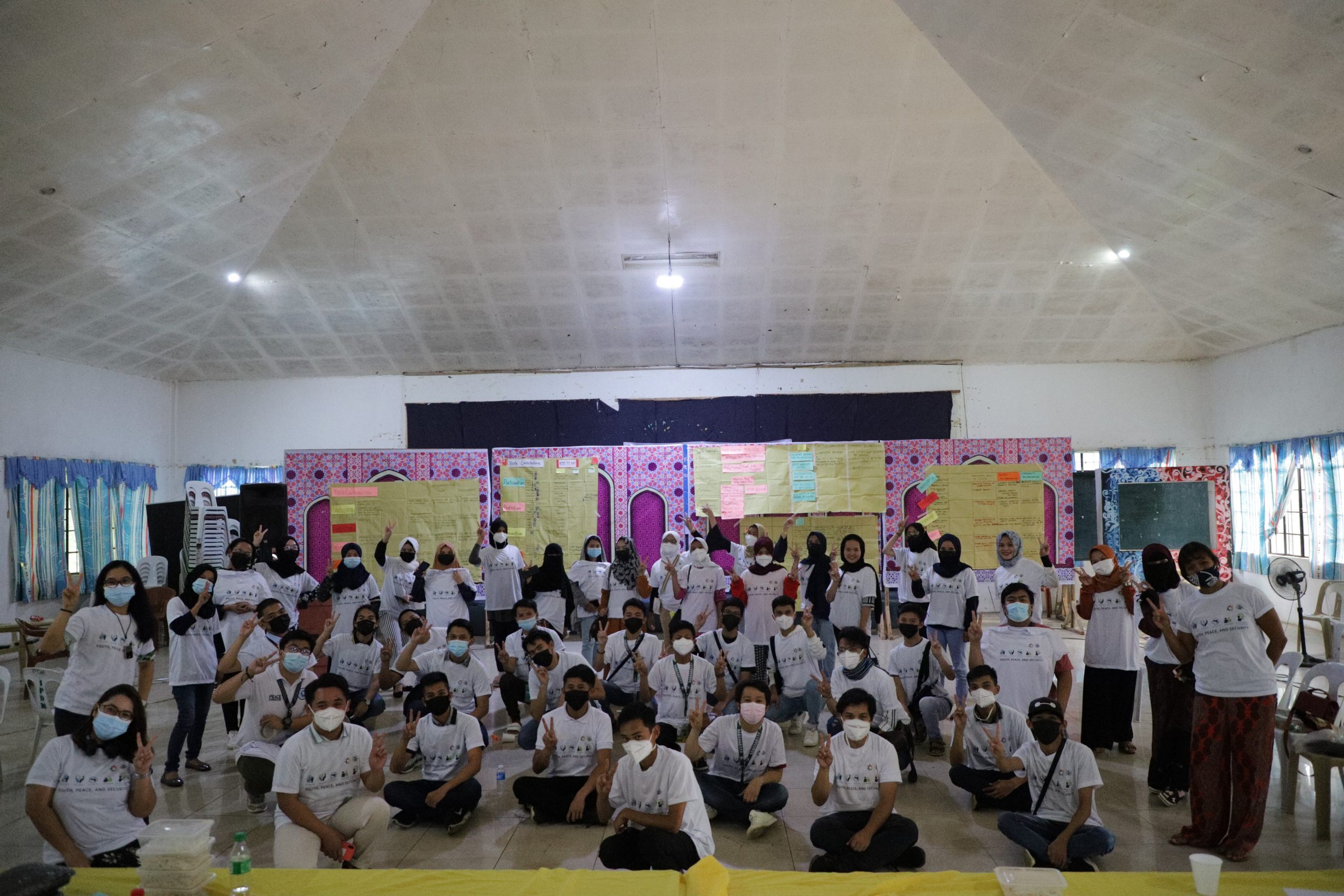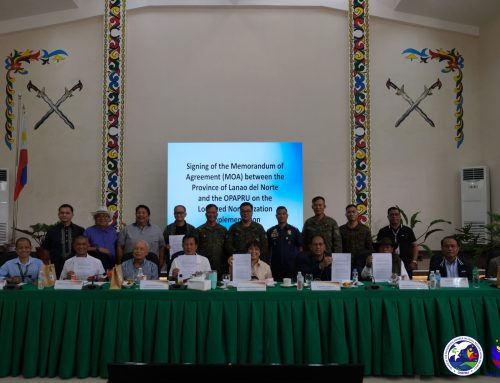BANGSAMORO AUTONOMOUS REGION IN MUSLIM MINDANAO — Youth groups from across the Bangsamoro Autonomous Region in Muslim Mindanao (BARMM) gathered here to share proposals that would be included in the crafting of the National Action Plan on Youth, Peace, and Security (NAP YPS).
Arafat Hamid, 19, a member of the Saguisag A Ranaw youth organization, shared that he and his fellow youth leaders are staunch peace advocates in the province because they do not want another siege to occur.
“Our main motivation for advocating for peace is the personal experience for the youth from the Marawi siege. The Marawi siege has become the biggest factor on why we are advocating for peace because it comes from personal experience,” Hamid recalled.
“And we do not want to experience another siege again in our community,” he said.
The Youth, Peace and Security (YPS) activity is part of the national government’s effort to encourage the active participation of the country’s vulnerable sectors such as women, indigenous peoples, and the youth through a series of community consultations with an aim of formulating a National Action Plan on Youth Peace and Security that recognizes the unique experience of the youth before, during and after the conflict.
In 2018, the OPAPP together with its partner agencies and peace partners crafted the Youth Peace Agenda based on the three regional consultations in Luzon, Visayas, and Mindanao. The formulation of the NAP YPS was then a result of the derived peace agenda.
Through the Social Healing and Peacebuilding (SHAPE) Program launched by the Office of the Presidential Adviser on the Peace Process (OPAPP), the government aims to address the key drivers of conflict by reducing and preventing economic, political, and social injustices.
The NAPYPS, which is anchored on the United Nations Security Council Resolution No. 2550, will serve as the nation’s blueprint to ensure the protection and security of the youth, as well as their increased participation in the decision-making process and peacebuilding.
“The exploitation of the youth remains prevalent particularly in the farthest, hard-to-reach communities in our country,” underscored Presidential Peace Adviser Carlito G. Galvez Jr, in a message delivered by Karla Rodulfo, division chief of Youth, Peace and Security for OPAPP’s SHAPE Program during the YPS consultation.
“Radical and extremist groups are creating a false narrative against the state and are encouraging young people — who are among the most vulnerable members of the society — to use firearms, fear, and violence to promote their twisted ideologies,” Galvez pointed out.
“This is why our gathering today is both timely and crucial, as this will allow us to strategize and formulate interventions based on the realities you are experiencing on the ground,” he added.
From personal experience
In 2017, the Daesh-inspired violent extremist group laid siege to Marawi for five months, resulting in the displacement of approximately 200,000 families, claiming the lives of civilians and soldiers alike, and reducing major parts of the once beautiful city to rubble.
Nor-ain Mohammad, 22, from the Ranaw Youth Development Council agreed with Hamid, emphasizing that the Marawi siege has emboldened the youth to speak out and share their views supporting the peace process.
“Youth is said to be a vulnerable sector, ‘yong mga na-encounter namin na conflict ay ‘yong nagmo-motivate sa amin para makibahagi sa usaping pangkapayapaan,” Mohammad said.
The effect of Marawi siege amplified the youth’s voice at ma-strengthen pa ang aming involvement sa proseso,” she added.
On the last day of the consultation, Bangsamoro Youth Commission (BYC) and Sangguniang Kabataan (SK) Federation members were invited to listen to the consolidated inputs and recommendations of the youth that will be incorporated into the NAPYPS.
Atty. Najeeb Taib expressed BYC’s support for all the youth and youth groups in the Lanao del Sur and the BARMM, emphasizing that they all play a critical role in peacebuilding and development in the region.
Meanwhile, SK Federation of LDS President Jamil Adiong encouraged the youth participants to continue to be changemakers and the voice of their generation.
Taib and Adiong congratulated the youth participants for being part of the NAPYPS journey.
Change starts from within
Prior to the consultation with the youth representatives in Marawi City, OPAPP, in partnership with the 53rd Infantry Battalion of the Philippine Army, also conducted an orientation for 40 youth leaders in the Zamboanga Peninsula.
Loderoy Esic, a 27-year old Subanen youth leader, was among those who participated in the two-day YPS event held late last year.
“If you want change, we should always start within ourselves,” he said when asked about his main takeaway during the orientation.
“Minsan lagi natin hinahanap ang change, pero ‘yung change na hinahanap natin di natin mahanap sa sarili natin,” Esic added.
Meanwhile, 22-year old Ara Miparanun believes that poverty is a major factor that has made the youth vulnerable to recruitment by rebel and extremist groups.
“We (youth) are very vulnerable from extremism and other groups. May mga kabataan na hindi nila nararamdaman ang government. Minsan kung ano ang kinalakihan ng pamilya nila, nadadala rin nila sa pagtanda,” Miparanun said.
“But we can change. Depende kung may mga invites mula sa kabilang mga grupo, pero nasa amin na kung hahayaan ba namin ang sarili namin na makasama sa kanila,” she stressed.
According to Miparanun, education is a powerful tool that can be used to create a positive mindset among the youth and encourage them to become peacebuilders.
“Edukasyon lang po ang tanging pinanghahawakan namin lalo na sa aming mga youth. May mga bata kami na tinutulungan na napakalayo pa po ng tatahakin bago makarating sa schools,” she said.
“Pero ang amazing din po nila dahil nag-try pa rin sila makapasok kahit hirap sa buhay,” she said,” Miparanun added.
The United Nations defines violent extremism as “a product of historical, political, economic, and social circumstances” that affects communities and makes them vulnerable from lawless ideologies.
To date, OPAPP continues its regional consultations with youth groups based in Zamboanga and the island-provinces of Basilan, Sulu, and Tawi-Tawi. ###












